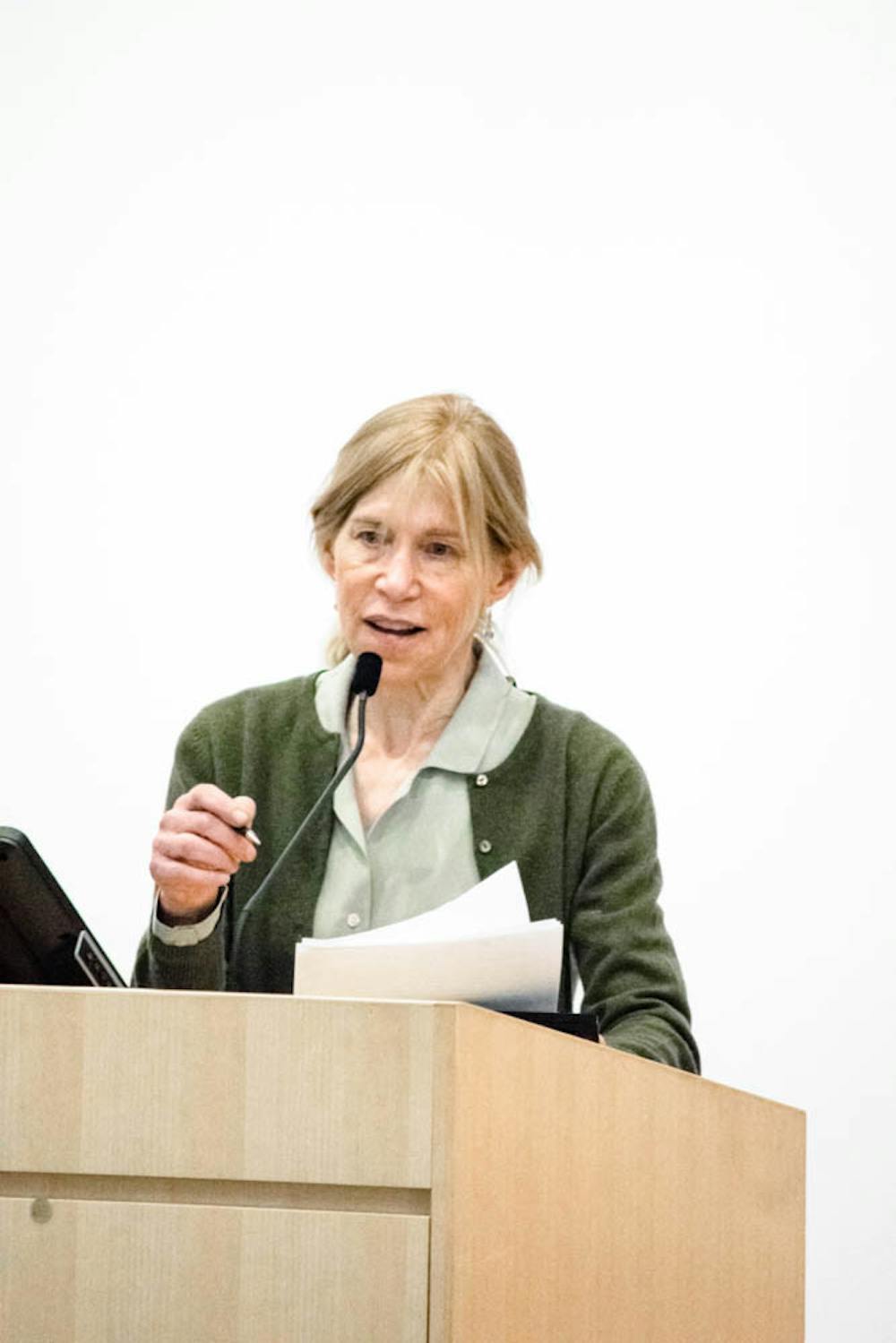When Alissa Rubin ’80 left Brown with a degree in renaissance studies and a hunger to travel, she did not foresee a future in journalism. But after a brief stint in academia, a transformative trip to apartheid South Africa launched a career that would take her to the Balkans, Afghanistan, Iraq and now Paris.
“It’s the most wonderful thing to be able to live a life of asking questions and trying to figure out the answers,” she said in an interview with The Herald. After the interview, she recounted stories from her life as a journalist in a public event hosted by the Watson Institute for International and Public Affairs.
“In my mind, we’re not powerful people, as journalists. Nor should we be, necessarily. We’re supposed to be listening to people at every level,” Rubin told The Herald.
While Rubin loves her job and cannot imagine a day when she quits or retires, she is often frustrated by the limitations of reporting. “Almost not a day goes by that I don’t wish I’d become a doctor. I wish I could make people better and not hurt,” she said. “Talking to me, in the short term, it doesn’t help anybody,” she said. Being a journalist “is an enormous self-indulgence.”
Journalism creates a window into another world, albeit a warped one, Rubin said. “You help people see how complicated and gray and shadowy issues are out there in the world.”
Delving into the lives and perspectives of so many makes it difficult “not to become a complete moral relativist,” she added.
However, “my job isn’t to tell people which moral axis to choose,” Rubin said, adding that she has the power to show people the consequences of their decisions. “You want to look at why things happen, what drives events and what drives … people to do what they do,” she said.
American perceptions of U.S. motivations and actions in the Middle East are often flawed, which can make reporting with context more difficult, Rubin said. “Americans want to be welcomed, they want to be beloved — and yet, what they do is almost certain to have the opposite effect.”
She recounted a day when she met with a man whose son had died in a bombing. “I remember once, having a translator, I said: ‘Well, how does the man feel, his son was killed by that bomb, will he ever help out the … (nearby) American base again?’ My translator said, ‘He said he feels very sad.’”
She had picked up some familiar words in Arabic, and the translation sounded off. After she questioned him, the translator eventually said, “Yeah, he would like to have them all killed, just like his son was killed.”
Some translators try not to relay information when a source says something particularly negative, especially about Americans, Rubin said.
“Most of what we do … is drop bombs and shoot people, and you’re always going to make a lot of enemies when you do that, and you’re always going to make mistakes,” she said. The American people can find it hard to accept that “most people don’t necessarily want democracy and capitalism,” she added.
Rubin’s perspective as a journalist is shaped and informed by a deep appreciation for history. “For me, journalists are a lot like historians and anthropologists,” Rubin said at the talk.
This perspective was reflected when, in a moderated discussion with Professor of International Studies Catherine Lutz, Rubin considered the universal causes of war. “You always want to go back and see what happened to people who are disfavored by the war, you want to look at what the losers are doing, because the losers are the ones who carry the seeds of the next war.”
When Rubin spoke at the event later in the day, she riveted her audience by reflecting on her experiences as a journalist in an immersive account of the work that went into a story published in 2011, “Costly Afghanistan Road Project Marred by Unsavory Alliances.” The article covered the complications of the construction and corruption surrounding the Gardez-Khost Highway, an ill-maintained American-funded infrastructure project. She discussed this story at the talk to illustrate the enormous costs and labor of thorough overseas reporting and the importance of firsthand coverage.
As publications cut funding, fewer news outlets “are able to afford to send reporters (and) photographers. … Americans are learning more and more about war based on sources that have never been there,” Rubin said. “And that almost always means that they report in a way that glosses over the ambiguities — and instead they get the idea that there’s a coherent story. And war isn’t coherent.”
Michelle Schein ’18 said she appreciated Rubin’s “very straightforward and direct commentary on what it means in today’s age to do foreign reporting,” adding that “it’s definitely a good point that we see a lot fewer news sources doing that.”
Director of the Watson Institute Edward Steinfeld, who introduced Rubin, said the talk “underscored, to me, not just how difficult it is to cover these warzones (and) not just how much money and resources are required, but it also underscored the unbelievable courage of somebody like Alissa covering these stories.”
“She didn’t emphasize that point; it was very obvious from what she said that … there’s an unbelievable amount of dedication and courage that must be required for somebody to risk her life to cover those stories, and I’m personally deeply moved,” he added.





